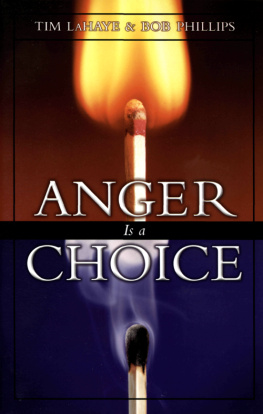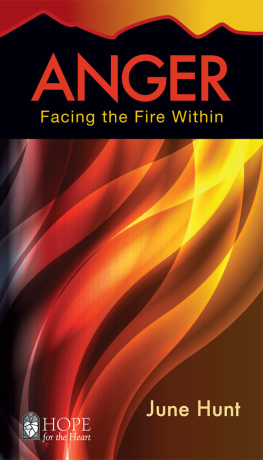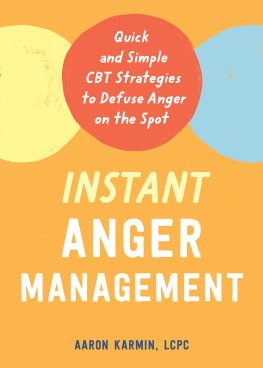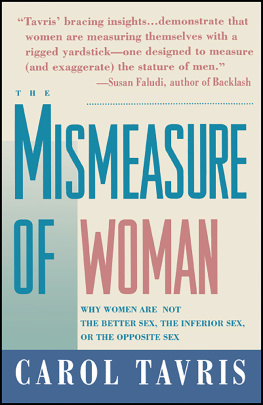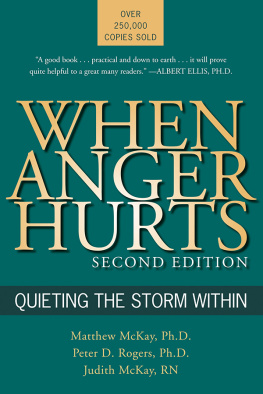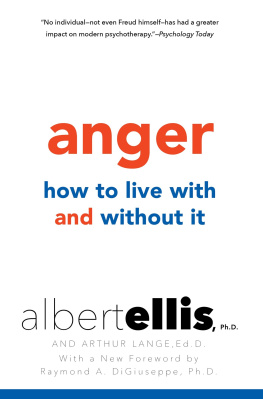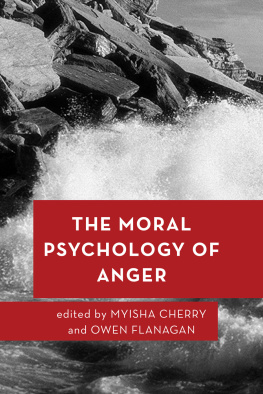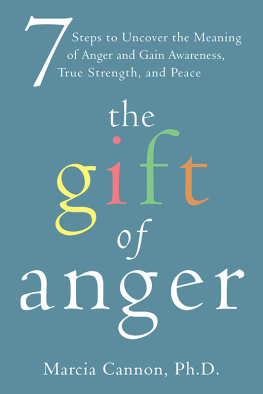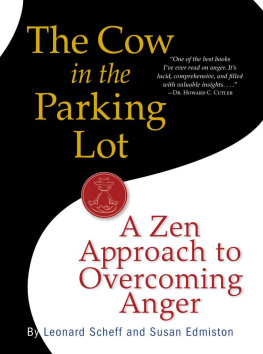
The Cow in the Parking Lot
A Zen Approach to Overcoming to Overcoming Anger
Leonard Scheff and Susan Edmiston
Workman Publishing New York
Copyright 2010 by Leonard Scheff and Susan Edmiston
The parables on pages 70, 88, 113, 116, and 130 are reprinted from Zen Flesh, Zen Bones, by Paul Reps and Ngoyen Sensak, copyright 1985 by permission of the publisher, Weatherhill.
Excerpts in from Those Arent Fighting Words, Dear, August 2, 2009, The New York Times. All rights reserved. Used by permission and protected by the copyright laws of the United States.
Excerpts on pages 179183 and 184 from Anger by Thich Nhat Hanh, copyright 2001 by Thich Nhat Hanh. Used by permission of Riverhead Books, an imprint of Penguin Group (USA) Inc.
All rights reserved. No portion of this book may be reproducedmechanically, electronically, or by any other means, including photocopyingwithout written permission of the publisher. Published simultaneously in Canada by Thomas Allen & Son Limited.
Workman books are available at special discounts when purchased in bulk for premiums and sales promotions as well as for fund-raising or educational use. Special editions or book excerpts also can be created to specification. For details, contact the Special Sales Director at the address below or send an e-mail to specialmarkets@workman.com.
In memory of John Clayton Bilby, friend and teacher

You are at the grand opening of a new shopping mall on the edge of town. Youve been driving around looking for a parking space for ten minutes. At last, right in front of you, a car pulls out of a spot. You hit your turn signal and wait as the car backs out. Suddenly, from the other direction, comes a Jeep that pulls into the space. Not only that, but when you honk, the driver gets out, smirks, and gives you the finger. Are you angry?
Now change the scene ever so slightly. Instead of a brash Jeep driver, a cow walks into the space from the other direction and settles down in the middle of it. When you honk, she looks up and moos but doesnt budge. Are you angry?
The Cow in the Parking Lot,
A Contemporary Zen Parable

Introduction
Most people, if asked, would agree that we would be better off without anger. Yet anger seems to be a growth industry, which, unfortunately of late, has entered a new phase of destructiveness. Today, we live in a society marked by road rage, spousal abuse, professionally angry TV and radio commentators, teenagers who go on deadly rampages, and an us versus them mentality. We live in daily fear of super vandals who are willing to kill thousands to vent their anger.
The question is, why does anger not only persist but increase?
First, anger is a normal human emotion. Everyone gets angry. Someone once asked the Dalai Lama what he thought of people who study the teachings of Buddhism and then use that knowledge to make money. His response was temperate at first. But as he went on, he grew red in the face. Even though he is the human embodiment of patience and compassion, the Dalai Lama himself has admitted that he gets angry. The object of this book is not to eliminate anger but to place it and our expression of it in a different context.
The second reason for the persistence of anger is that there is no obvious alternative. This book will offer one based on Buddhist teachings, but it does not require any specific religious belief. Nor is it psychotherapy except as Gestalt therapist Fritz Perls once said, Awareness is therapy per se. A fair summary of this book is: You are hitting your hand with a hammer. If you stop, you will feel better.
We have been conditioned in many ways to use anger as a tool for obtaining our ends. Most people do not question this practice and are almost completely oblivious to its costs. My experience in teaching my workshop is that once people realize there is an alternative, their anger begins to dissipate.
The third reason for the persistence of anger is that it is addictive. There is a physical and emotional high that comes with feeling anger. The physical sensation is set off by the release of adrenaline with its resulting increase in blood pressure. This anger high becomes addictive much as smoking or drinking does. Like other addictions, anger has its price, which can include heart attack, stroke, and other health problems. I have heard people say, I only feel really alive when I am angry. That is like saying, I only feel really healthy when I am smoking. Both are examples of how wrong we can be when living in what Buddhism calls maya, the world of illusion created by our thoughts.
The conventional addictions, smoking and drinking, are difficult to give up in part because, if you are successful, you may feel like hell for weeks, months, or even years. Recovering alcoholics often say, There isnt a waking hour that goes by, that I dont want to have a drink.
The good news about reducing or giving up anger is that from the very first time you choose not to be angry or not to act out your anger, you feel better. Once youve experienced the difference, you will not want to return to that habit.
Some people may argue that anger is necessary and serves useful purposes. True, when we become angry, it may be an indication that something is wrong with the way we are relating to others or to our environment. Anger can also galvanize us to act on something we believe is morally wrong. When you see someone abusing a child, a form of anger that may be called moral indignation arises. But if your remedy is pursued in hot-headedness, it may well worsen the situation. If you see a mother repeatedly slapping a child, you may want to interfere physically, perhaps even by hitting the mother. That may interrupt the abuse for the moment, but the mother may well add that provocation to her reasons for continuing to abuse the child at a later time.
On the other hand, if you look at the available options with a cooler head, you may find a way to intervene that does not heighten the conflict between mother and child. Sitting next to them in such a way that the mother is embarrassed to continue the abuse may provide a temporary solution, and may lead to a beneficial conversation without promoting further anger against the child.
To act out of moral indignation demands that we pause to consider the best options for putting the situation right. When we act solely out of anger, with little regard for consequences, we are not pursuing the greater good but are only assuaging our own emotional distress. And the result could make the situation worse rather than better. Certain disciplines, in particular the martial arts, teach that when you act out of anger you are more likely to lose.
Many people believe that they cant help acting on their angry feelings. They see no space between becoming angry and expressing that anger. They believe that they have no control over and no choice about the anger they feel. One of the lessons of this book is that we can consciously create a space between the rise of anger and the actions we take as a result.
When you apply the techniques offered here with ongoing success, you are more than likely to feel an increase in self-esteem. No longer does your anger control youyou control your anger. Unlike the self-esteem that comes from without (You look good today; You did a good job), this feeling is not dependent on others perceptions.
Next page

